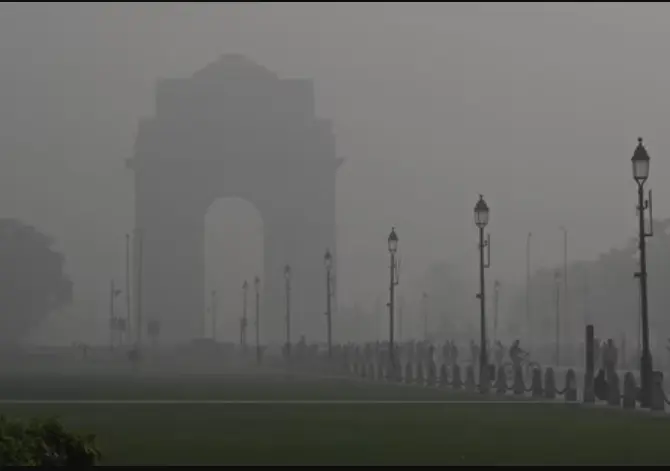Delhi AQI Today: Air Quality Improves Slightly, but Remains Toxic

Today, Delhi’s air pollution showed only a slight improvement. It remains in the category of “very poor”, providing little relief for residents living in the city engulfed by smog. Authorities have decided to delay the introduction of GRAP Stage 3 for now due to a slight drop in pollution.
Delhiites woke up to a heavy blanket of smog on Monday, as the overall Air Quality Index for Delhi remained hazardous. The Central Pollution Control Board’s (CPCB) data shows that the Delhi AQI was 346 as of 6:05 am. Although this represents a decrease from the 391-point high for the day before, the air is still toxic and dangerous to breathe. Temperatures as low as 11.6 degrees Celsius were recorded.
The city’s average showed a slight improvement, but most of the monitoring stations in the capital still reported pollution levels between “very poor” and “severe”. CPCB data from the Sameer app at 6 am on Monday showed that Bawana, with an AQI score of 412, was among the worst-polluted places. Wazirpur, Jahangirpuri, and Nehru Nagar follow this area.
The situation had gotten even worse the day before, when over 20 out of 39 stations in the city registered an AQI of 400 or more. Environmental experts attribute the slight improvement in Delhi’s AQI to a small increase in wind speeds and a reduction of stubble-burning incidents in neighbouring states. These factors, however, haven’t been enough to raise the air pollution to a level that is safe.
Also Read: Breathing Feels Like Smoking! Delhi Air Quality Turns Toxic; Is a Lockdown Next?
The Delhi AQI is being closely monitored by officials today. If conditions worsen, they will reassess whether stricter actions are needed under the Graded Response Action Plan. Residents should limit their outdoor activities and wear masks in order to avoid the negative effects of toxic air.
Central Pollution Control Board
It is an Indian statutory body under the Ministry of Environment, Forest, and Climate Change. The Water (Prevention and Control of Pollution) Act was passed in 1974. CPCB monitors air and water pollution and implements national programs to prevent and control environmental pollutants. The CPCB provides technical assistance to the Ministry of Environment and Forests in accordance with the Environment (Protection) Act of 1986.





